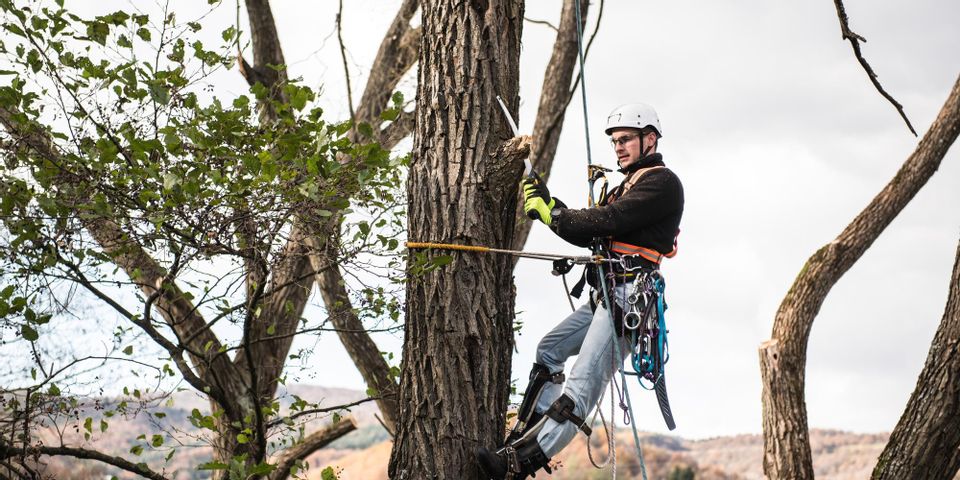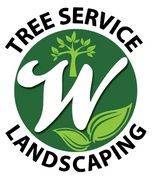
Trees die for a variety of reasons, including disease, drought, and root damage. While it's not always preventable, identifying common issues can help you provide proper tree care before they get worse, potentially saving your landscaping. Use the guide below for signs a tree may be dying.
3 Ways to Identify a Sick Tree
1. Deep Cracks or Missing Bark
Cankers are deep cracks or bare patches of bark that indicate distress in trees.
Canker diseases typically occur when a wound in the tree has become infected by fungal or bacterial pathogens, killing branches or structurally weakening the tree until it eventually collapses. Because there is no treatment for canker diseases, preventative measures are essential to maintaining the overall health of your tree.
If a canker infection occurs on twigs or branches, carefully remove the affected limbs with sterilized pruning tools to prevent further spread.
2. Falling Branches
 Dead branches, such as those that no longer produce foliage or have lost their bark, indicate that a tree is unhealthy.
Dead branches, such as those that no longer produce foliage or have lost their bark, indicate that a tree is unhealthy.
While some tree varieties, such as ash, aspen, and pecan trees, shed branches as a way of self-pruning, it may also be a sign of a pest infestation such as wood-boring insects, or a disease. Proper tree care, including insect removal and fungal treatments, may help you save the tree.
3. Leaf Drop
While it's common for deciduous trees to lose their leaves in the fall and winter, leaf drop during the growing season is typically a sign a tree is sick or dying. It may also be the result of overwatering, a mineral deficiency in the soil, lack of sunlight, or summer dormancy caused by drought or excessive heat.
Because there are numerous reasons for leaf drop, contact a tree care specialist to determine the cause and the best course of treatment.
If your trees are damaged or dying, contact W. Tree Service & Landscaping in Dover, NJ. With over 15 years of experience, their professionals provide a variety of tree care services, including trimming, removals, transplants, and more. Contact them today at (973) 307-4972 to schedule an appointment, or visit them online to learn more about their services.
About the Business
Have a question? Ask the experts!
Send your question

